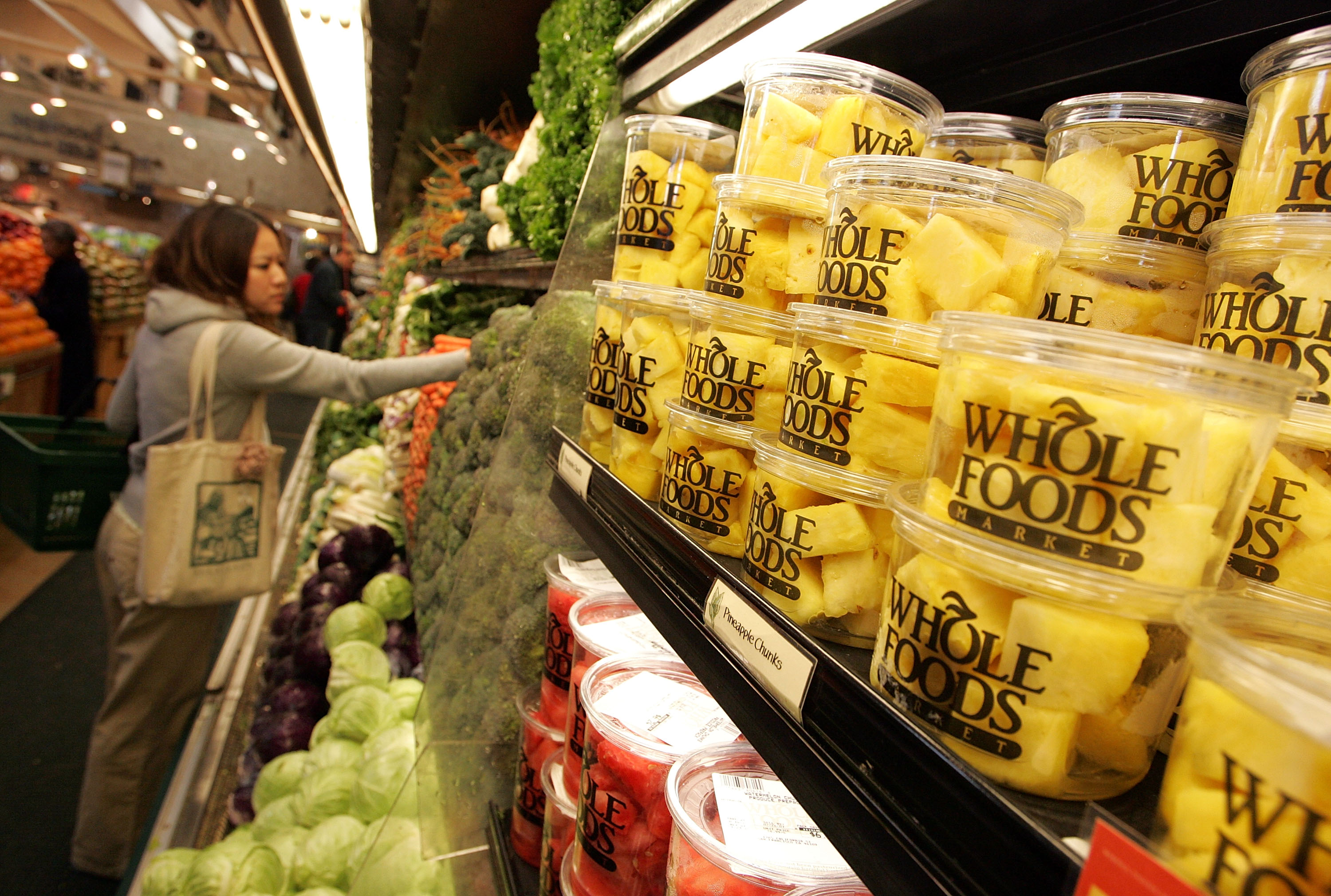Amazon's big gamble on grocery delivery
Even a perpetual disrupter like Amazon faces an uphill battle in the grocery-delivery business

A free daily email with the biggest news stories of the day – and the best features from TheWeek.com
You are now subscribed
Your newsletter sign-up was successful
The smartest insight and analysis, from all perspectives, rounded up from around the web:
"The Amazon-fueled grocery price war may have finally arrived," said Craig Giammona at Bloomberg. Six months after Amazon purchased upscale grocer Whole Foods for $14 billion, the e-commerce giant announced this month that it would test free two-hour grocery delivery for Prime members in four U.S. cities: Dallas; Austin; Virginia Beach, Virginia; and Cincinnati. Amazon has "tried for at least a decade to crack the code on delivering fresh food, with little success." But now that it has 475 Whole Foods locations to serve as distribution sites, it might "be a turning point for buying food online." That's just what rivals such as Walmart and Kroger fear, said Elizabeth Weise at USA Today. They worried when the Whole Foods sale was announced that Amazon's "weight with suppliers could force down already thin grocery margins," and indeed, Amazon has slashed prices on many items. They're now fretting that with roughly 90 percent of Prime members located within 10 miles of a Whole Foods, the company will achieve "near-instant ordering and delivery," upending the industry.
Even a perpetual disrupter like Amazon faces an uphill battle in the grocery-delivery business, said Abha Bhattarai at The Washington Post. "For one, grocery stores aren't warehouses," so it is a challenge to efficiently pack orders before they need to be out the door. There's also the issue of keeping items cold or frozen. "Another challenge for Amazon: It is targeting suburban areas in middle America," not coastal cities where delivery is already a way of life. It could be difficult to convince consumers with cars and sprawling supermarkets that delivery is preferable to picking out their produce. I imagine plenty will recognize that Amazon's service would offer an "unprecedented level of convenience and affordability," said Christina Bonnington at Slate. But it will also have a major impact on neighborhoods and towns, as shopping plazas anchored by supermarkets suffer or shutter altogether. Amazon could "see pushback if local jobs and businesses recede."
The Week
Escape your echo chamber. Get the facts behind the news, plus analysis from multiple perspectives.

Sign up for The Week's Free Newsletters
From our morning news briefing to a weekly Good News Newsletter, get the best of The Week delivered directly to your inbox.
From our morning news briefing to a weekly Good News Newsletter, get the best of The Week delivered directly to your inbox.
Delivering fresh kale and heirloom tomatoes to millions will be difficult even for Amazon, said Derek Thompson at The Atlantic, but it's all part of a larger plan. Amazon is relentlessly pushing into more and more facets of our daily lives — whether it's health care, movie and TV streaming, or a smart speaker updating your calendar. Groceries are simply Amazon's "next step in turning Prime into the ultimate 'life bundle.'" I confess I felt a "combination of glee and guilt" when I heard the announcement, said Jordan Weissmann at Slate. As an economics writer, I understand that "by buying my groceries at Jeff Bezos' everything store, I'll be helping to usher in a future where our lives are even more thoroughly dominated by a few corporate behemoths." But as a consumer, I'm a sucker for "convenience and cost." So until someone comes up with a "policy that assuages my fears about corporate hegemony, I'll enjoy having my wild-caught Pacific salmon brought to my front door free on short notice."
A free daily email with the biggest news stories of the day – and the best features from TheWeek.com